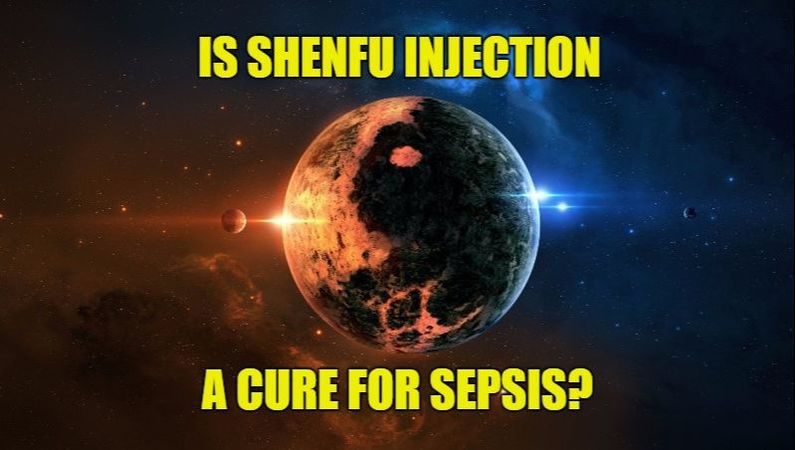|
Today we are covering a study on a medication not commonly used in the United States or most of the world: Shenfu. It is not discussed much but does have implications as a potential cure for sepsis and has been used in China for the last two decades. Given the recent discussions about cures for sepsis based on other studies, it seemed appropriate to talk about something with a growing body of evidence that most of the world may be ignoring without a good reason.
Title:
Shenfu injection for improving cellular immunity and clinical outcome in patients with sepsis or septic shock Case: A 36 y/o male comes from home for fever with pneumonia. During his stay he deteriorates to septic shock and the plan is for admission to your facility. As you discuss with the patient and family the plan for treatment, a family member asks you about a recent medication she read about on an alternative medicine website where they used Shenfu in sepsis. Background: Shenfu injection originates from Shenfu decoction. This traditional Chinese formula is used to restore “Yang” from collapse and tonify “Qi” for relieving desertion. It is prepared in ginseng and aconite. Ginsenosides and aconite alkaloids are the main ingredients in Shenfu. Ginsenosides provide vasodilatory effects while alkaloids contribute to cardiac electrophysiological effects by blocking ion channels. Shenfu has been used to provide a treatment for septic shock in China for more than two decades. Clinical Question: Does Shenfu injection enhance cellular immunity and improve clinical outcomes in patients with septic shock? Reference:
Author’s Conclusions: These findings suggest that Shenfu injection can enhance the cellular immunity of patients with septic shock and could be a promising adjunctive treatment for patients with septic shock. Quality Checklist for Randomized Clinical Trials:
Key Results: A total 157 patients were included in the study with 78 in the Shenfu injection group and 79 in the placebo group. Follow-up was at least 28 days. Three patients were excluded (after allocation) with one being due to protocol violation and two from withdrawal of consent. Patients were matched with respect to demographics and clinical characteristics. Shenfu injection increased CD4+ and CD8+ T cells and up-regulated HLA-DR expression in monocytes. Shenfu injection was also found to restore ex vivo monocytic tumor necrosis factor α and interleukin 6 prinflammatory cytokine release in response to the endotoxin. Shenfu injection showed better clinical outcomes compared to placebo in regards to vasopressor use, APACHE II score, Marshall score, and length of ICU stay. However, the 28 day mortality rate did not significantly decrease between Shenfu injection (20.5%; 16/78) and placebo (27.8%; 22/79). Key Points of Debate:
Comparing Conclusions: Although limited, we agree with the conclusion that patients given Shenfu injection did enhance cellular immunity of patients with septic shock and that this Shenfu injection could be a promising adjunctive treatment for patients with septic shock. Our Bottom Line: We agree that based on the current evidence available, Shenfu injection is potentially a promising adjunctive treatment for patients with septic shock but that further research is needed. Case Resolution: You discuss with both the patient and the family that there is limited evidence to Shenfu injection and that it is currently not available at your facility. You explain how you will continue to provide other mainstays of treatment for sepsis that does have more evidence and is commonly used in order to provide the best care. They agree to this plan of treatment and your patient improves throughout their admission. He is discharged home after making a full recovery. Clinical Application: At this time, further research is needed to identify if Shenfu injection could potentially be used more broadly in sepsis. Although it is commonly used in China, there could be differences in local populations that may not make this as effective a treatment. What do I tell my patient? There is a promising new treatment call Shenfu injection that is being used in China. We do not have it here and are waiting for more trials to be performed. It is possible that in the future this could be used but quality data is limited at best. We hope that, like many other treatments, it will be part of the cure. However, we must be cautious with using any of these types of treatments without better research as they could carry negatives that we do not detect. Conclusion: The American Journal of Emergency Medicine has made this article's full text available for free here and would be well worth the read. EM Lit of Note has also made a review of this same article and is available on their monthly podcast. As was mentioned in the actual podcast, another reason for discussing this paper is given the recent discussion of "cures" for sepsis with the main discussion being around Paul Marik's paper. This paper on the use of hydrocortisone, vitamin C, and thiamine has been widely discussed including a very detailed post by PulmCrit's Josh Farkas on the science behind this management. The SGEM critiqued the paper in great detail and it is worth listening to the arguments. Overall, the point remains that we must be cautious about any "cure" for sepsis. If we are looking for cures, we should not stop with this idea combining hydrocortisone, vitamin C, and thiamine but press forward with other thoughts such as this Shenfu injection. Thank you for listening to the podcast and reading the blog. Please let us know what you think by giving us feedback here in the comments section or contacting us on Twitter or Facebook. Remember to look us up on Libsyn and on iTunes. If you have any questions you can also comment below, email at [email protected], or send a message from the page. We hope to talk to everyone again soon. Until then, continue to provide total care everywhere.
2 Comments
5/10/2017 10:09:14 pm
Nice job at systematically going through the methodology of this study.
Reply
Chip Lange, PA-C
5/11/2017 09:41:36 pm
I appreciate your comments and thank you for elaborating on your recent Tweets. You obviously have very strong views regarding this paper as well as others you have covered in the past and would appreciate talking to you some more. If you would like, you can email me at [email protected] for further conversation possibly on Skype.
Reply
Leave a Reply. |
Libsyn and iTunesWe are now on Libsyn and iTunes for your listening pleasure! Archives
August 2022
Categories |
||||||


 RSS Feed
RSS Feed